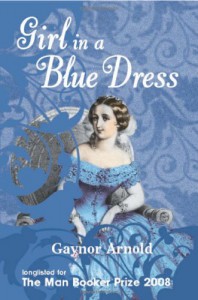Girl in a Blue Dress by Gaynor Arnold

I’m not a Dickens fan as it is – I find him too depressing in a frustrating way, not in a relatable, making-me-sympathise-and-cry way – but Girl in a Blue Dress was recommended by a friend who also lent it to me, so I gave it a shot.
It didn’t make me like Dickens any more, but there were things I liked about it, as well as those I didn’t.
What I liked:
- sort of Victorian-novel-like writing style,
- the presentation of living situations of the middle and the upper-middle classes in the Victorian era,
- Dorothea shaking off her bonds and embracing life again at the end,
- Dorothea becoming more confident and aware of an unequal situation of women in the society and even advocating women’s rights, even though only in the familiar circle, but stating her opinion at last was a big step for her.
What I didn’t like:
- Alfred and the way he treated Dorothea and other women or, actually, all people
- Alfred being such a horrible self-centred man, always managing to spin the story the way it made him look good and everyone else at fault for whatever happened
- Dorothea being so passive and submissive, actually spineless, and worshipping Alfred despite the way he treated her
- and Dorothea blaming solely Miss Ricketts for stealing her man (whereas Miss Ricketts was actually Alfred’s victim herself, which at the end Dorothea recognised)
A little spoiler, perhaps, though not really:
(show spoiler)
All in all, Girl in a Blue Dress is not an outstanding book, but it has some enjoyable elements and some thought-provoking themes.
RECOMMENDATION: Victorian literature and Dickens lovers would probably like Girl in a Blue Dress.
This review was originally published on my book blog, Beyond Strange New Words.
 1
1



